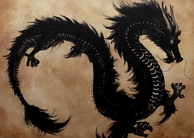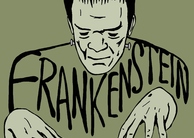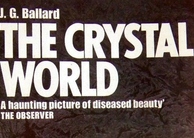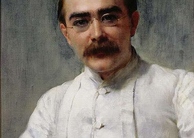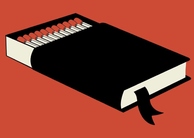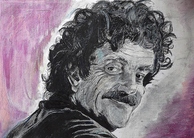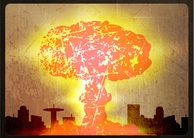|
Fiction (tagged articles)
The keyword Fiction is tagged in the following 19 articles.
2021, Vol. 13 No. 10
In this essay, I will analyze the structure of Fiction, arguing that this structure is a duality that rests upon a spirit that defines and propels Fiction in reality. This spirit, which I refer to as the Other-than, is the metaphysical embodiment... Read Article »
2020, Vol. 12 No. 09
Human beings decided that time is linear. We continually assert that is made up of the past, present, and future, proceeding infinitely and mercilessly in an exclusively forward motion. Thus, our lives and our relationships are experienced linearly... Read Article »
2019, Vol. 11 No. 04
This paper explores the conflict between hegemonic and new masculinity in Phil Klay’s Redeployment, illustrating the changing conception of gender roles and masculinity in storytelling about war. This paper juxtaposes traditional conceptions... Read Article »
2017, Vol. 9 No. 12
Since its emergence in the 19th century, fantasy Fiction has proliferated throughout the world, from the global craze of Lord of the Rings (1954) to Harry Potter (1997). As a sub-genre of fantasy based on Chinese traditional mythology and martial... Read Article »
2017, Vol. 9 No. 03
Anyone in pursuit of knowledge is bound to encounter sex somewhere along the way. In the early 19th century, a period during which sex was unspeakable, Fiction writers developed a distinct penchant for the unknown.[2] Mary Shelley’s Frankenstein... Read Article »
2017, Vol. 9 No. 03
Not long after J.K. Rowling published the first Harry Potter book on June 26, 1997, The Boy Who Lived exploded into an international phenomenon. Teachers read Harry Potter and the Sorcerer’s Stone to wide-eyed students and parents read it... Read Article »
2016, Vol. 8 No. 11
J. G. Ballard’s The Crystal World (1966) is a prismatic text, apparently translucent yet linguistically opaque, with moments of unexpected ontological intricacy. Like the crystals consuming the forest, Ballard’s descriptive language... Read Article »
2015, Vol. 7 No. 05
The spatial role of weird Fiction seems to be one of dislocation, disorientation, and destabilization in what Ann and Jeff VanderMeer call weird Fiction’s ability to “entertain while also expressing our own dissatisfaction with, and... Read Article »
2015, Vol. 11 No. 1
The early 20th century saw the rise of a unique subgenre of science Fiction and horror literature known as weird Fiction. H.P Lovecraft, one of its more prolific and lasting contributors, is rightly considered one of the fathers of the genre. Like... Read Article »
2014, Vol. 6 No. 09
In an interview in The Paris Review (1968), John Updike denies that characterization is a primary goal of Fiction. While he believes that narratives can contain psychological insights, he argues that the “substance” of a story is the... Read Article »
2013, Vol. 5 No. 11
Critical opinion of Rudyard Kipling, his imperialism, and his oeuvre has radically changed in the last century. Depending on the literary history and the time period, Kipling has been seen as either an exclusively South African poet (Warren 415),... Read Article »
2012, Vol. 4 No. 01
English literature is all-encompassing: it ranges from societal utilitarianism of the didactic through to the celebration of individualism embodied in post-modern work. Literature, as part of a larger cultural body, is both instructive and entertaining... Read Article »
2011, Vol. 3 No. 11
Dollhouse received mixed critical reviews and a fairly low number of viewers, but it is reasonable to argue that there has never been anything quite comparable to it before. Dollhouse combined elements of dystopian science Fiction, fast paced action... Read Article »
2011, Vol. 3 No. 08
In the western history of human existence the event, idea, and act of war stands totemic in the landscape. Borders both physical and mental have been defined by its threat and execution, and its aura hangs heavily over the last century as the bloodiest... Read Article »
2010, Vol. 2 No. 12
"The 'logically ordered' society results in a loss of spirit and soul, with the absence of suffering, of twilight and mystery, of emotions and meaning. … If this ordering principle were a figure, …it would be some Clockwork Orange... Read Article »
2009, Vol. 1 No. 12
When considering historical literature that is based upon people who once lived, readers often ask where the details are taken directly from historical accounts, and where they differ. This is a perfectly valid lens through which to view the work... Read Article »
2009, Vol. 1 No. 11
Considered by some to be the father of the short story, Anton Chekhov created a paradigmatic form for writing Fiction. By mimicking reality he produced a representational art through his stories. The revelations in Chekhov’s Fictional characters... Read Article »
2009, Vol. 1 No. 11
I like Kurt Vonnegut because he’s innovative and unique, his literary voice speaking out of a time period I love, when he “was actually helping to breathe life into a new genre—modern, pop Fiction,”[1] according to critic... Read Article »
2009, Vol. 1 No. 11
What is a cyclical history? Why does humanity seem doomed to repeat the same mistakes over and over again? Are we doomed to this machine called fate? What is a soul, and how do I express it? Predicting what futures may lay ahead for humanity if... Read Article »
Expedited Article Review
Submit an article and get a decision fast.
If you need a fast decision, INQUIRIES Journal offers expedited processing of your submission for a small fee. Depending on the expedited review option you choose, you can receive a decision in as few as 5-days.
In addition to a shorter review period, the fee supports the journal's continued operation and open-access publishing model. Standard submissions are always free. Submit Now » - Submit an Article to Inquiries Journal -
|














